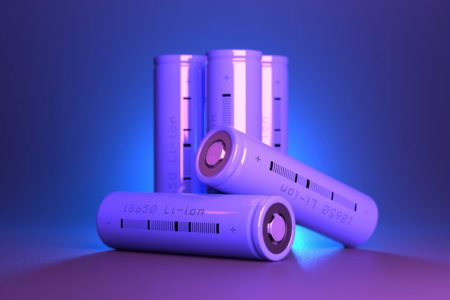Lithium-ion batteries provide a popular way to power many of your business devices. From cell phones to laptops, lithium-ion batteries help keep your devices up and running. However, with this type of helpful product, you’ll also have some safety hazards to keep in mind.
Potential Dangers of Lithium-Ion Batteries
You’ve likely seen news of destructive fires being caused by lithium-ion batteries. These fires occur when a battery is damaged or defective in some way and it overheats. When a lithium-ion battery overheats, it may catch fire or even explode due to it’s extremely flammable materials. Should this occur, upon ignition, the battery will burn at an extreme heat and let off toxic gasses. Even if the fire starts as a result of an outside source, once it reaches the lithium-ion battery, the fire could intensify.

What to Be Aware Of
You don’t have to avoid using lithium-ion batteries. However, you should keep a few factors in mind to ensure the safe usage of these power items. Be wary of your lithium-ion batteries if any of the following situations occur:
- The battery changes color or takes on a different shape
- The battery leaks or has an unusual odor
- The lithium-ion battery is hot to the touch or starts to smoke
If any of these issues arise, discontinue the use of these batteries right away.
Safety Tips with Lithium-Ion Batteries
Even if none of the previously mentioned issues are present and your lithium-ion batteries are in good condition, you should still be careful and keep the following safety tips in mind:
- The lithium-ion batteries come with the manufacturer’s directions. Make sure you always follow these directions when using your batteries.
- Charge your device in an open area in the room.
- Store your batteries and devices with the batteries in them at room temperature.
- When purchasing and using devices, chargers, and batteries, make sure these items have been listed with a nationally recognized testing lab.
- Use batteries and chargers that are specifically designed for the device.
- Do not store your batteries in the direct sunlight.
- Do not use power strips or extension cords to charge multiple devices all at once. Attach one device to one charger that’s plugged directly into an outlet. Charge one device at one time.
When to Dispose of Batteries
You should dispose of your lithium-ion batteries when their life span is up or if they are damaged in any way. Since these batteries fall within the hazardous waste category due to their reactivity and ignitability, you must dispose of them properly as batteries that aren’t disposed of in the right way can still pose a danger.
When the time comes to get rid of the lithium-ion batteries in your business, you can send them out to a specialty recycling and disposal center that handles your commercial waste. Make sure to avoid regular garbage disposal methods, trashcans, and dumpsters. In addition, you should individually bag batteries or tape the ends of the batteries before you dispose of them.
Use Lithium-Ion Batteries Safely
Lithium-ion batteries are extremely useful in many areas of business, so you’ll likely want to keep using these handy power items. Just make sure you do so safely. Total Fire Protection can help you with any lithium-ion battery questions as well as general fire and life safety services.




